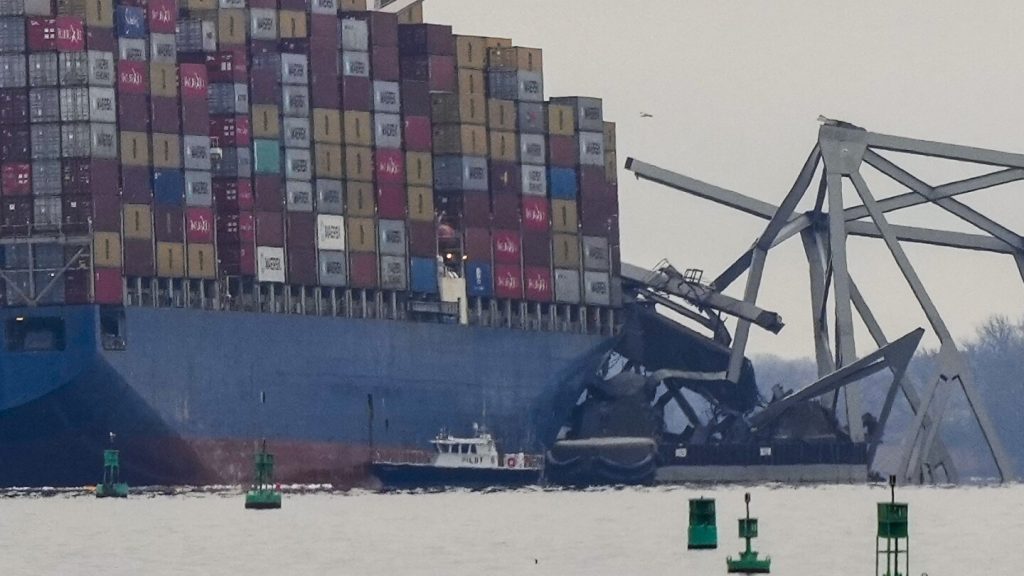A tragic incident occurred in Baltimore when a cargo ship lost power and crashed into the Francis Scott Key Bridge, resulting in the deaths of six workers who were part of a construction crew fixing potholes on the bridge. Divers were able to recover the bodies of two workers, but the others were presumed dead. The victims hailed from Mexico, Guatemala, Honduras, and El Salvador, and their families were given condolences by Maryland Gov. Wes Moore in Spanish. Search efforts have been exhausted, with authorities believing that the remaining vehicles with victims inside are encased in superstructures and concrete.
The U.S. Coast Guard revealed that the cargo ship had undergone routine engine maintenance in port before the incident, and the crew had issued a mayday call stating they had lost power and steering just before striking the bridge. The investigation into the crash began, with authorities recovering information from the ship’s electronics and paperwork. The National Transportation Safety Board is working to build a timeline of events that led to the accident. The crash also prompted the closure of the port in Baltimore, a critical link in the city’s shipping industry.
Capt. Michael Burns Jr. of the Maritime Center for Responsible Energy described the technical challenge of navigating ships in restricted waters, particularly challenging when facing a loss of power. Video footage showed the ship moving towards the bridge at a speed of 9 mph, causing the bridge to collapse within seconds. Authorities are investigating the role of local pilots who were guiding the ship at the time of the crash. The vessel was en route to Sri Lanka and owned by Grace Ocean Private Ltd., with support from Danish shipping giant Maersk.
The impact of the bridge collapse will have far-reaching consequences, affecting thousands of dockworkers, commuters, and U.S. consumers as shipping delays are expected. The closure of the Port of Baltimore, a crucial entry point for vehicles and various goods, will have a significant impact on the local economy. The Biden administration is focused on reopening the port and rebuilding the bridge, but timelines for these efforts are yet to be determined. The incident has brought attention to the importance of maritime safety and the challenges faced in navigating ships in busy waterways.
The tragic incident in Baltimore has once again highlighted the risks involved in maritime transportation, especially in congested areas. The loss of life and disruption caused by the bridge collapse serve as a reminder of the importance of safety procedures and precautions to prevent such accidents in the future. The recovery and investigation efforts are ongoing, as authorities work to determine the cause of the crash and prevent similar incidents from occurring. The impact of the incident on shipping and transportation in the region will be felt for an extended period, emphasizing the need for swift action and collaboration to address the aftermath of the disaster.


